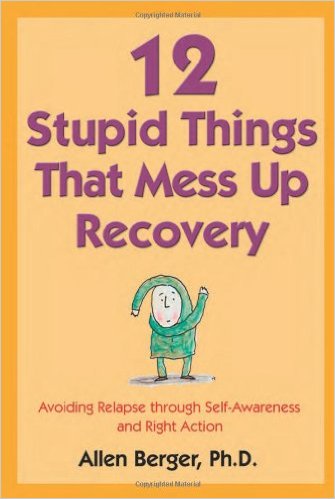Summary: Digging in the Muck
When a patient of mine is ambivalent about addressing a painful issue, I off er this reminder: “You can pay me now or pay me later.”
We can try to avoid digging in the muck, but eventually the issue we’ve been avoiding is going to surface. It is going to show up in our lives through our dreams or through the patterns that occur in our relationships.
We are wired to complete unfinished business, to move toward wholeness—or, as some say, (w)holiness. To be fully recovered from addiction we must realize and embrace our potential. The way I see it, all approaches to recovery help us recover our lost true self. We can call this our higher self or spiritual self—these terms are all synonymous. Our problem was that at some point we rejected our true self to become the self that we thought we should be—which sets us up for an addict-self takeover when our brains are hijacked by addiction. Is is our false self, which is what is really meant when ego is discussed in the Twelve Step literature.

We dedicated our lives to actualizing a concept of who we should be rather than actualizing the self we truly are. Our true self, you see, is comprised of the interplay of the desire and need to belong and cooperate (togetherness), and the desire and need to march to our own drum (individuality). When we operate from our true self, we strive to balance both of these desires. When these two are in balance, we can be self-concerned without being self-centered, self-aware without being selfish. It is what allows us to show genuine concern for others and fulfill the spiritual goal of service suggested by Step Twelve. Operating from our true self is the hallmark of emotional sobriety.
Fritz Perls understood that avoidance of suffering was at the root of our trouble. He observed that “we are phobic, we avoid suffering, especially the suffering of frustrations. We are spoiled, and we don’t want to go through the hellgates of suffering: We stay immature, we go on manipulating the world, rather than to suffer the pains of growing up” (1969, p. 56).
Recovery is about learning how to deal with and grow from our suffering. Taking a spiritual bypass is believing that if we follow a particular spiritual path, we can avoid suffering. One thing I have learned in my own personal work, and in helping thousands of men and women, is that we are much more capable than we know. We have a remarkable ability to face our pain and go beyond it to reach our full potential. But we will never realize it if we betray ourselves by using avoidance mechanisms such as spiritual bypass to maintain a false self that keeps us from honestly assessing our capacity to deal with life as it is.
PART ONE: Don’t Confuse a Spiritual Solution with a Spiritual Bypass


[…] PART THREE: Summary: Digging in the Muck […]
[…] PART THREE: Summary: Digging in the Muck […]